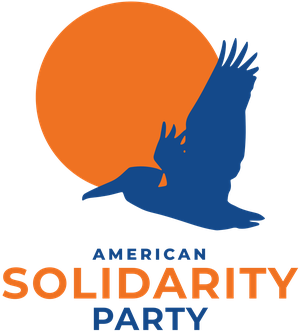 W
WThe American Solidarity Party (ASP) is a Christian democratic political party in the United States. It was founded in 2011 and officially incorporated in 2016. The party has a Solidarity National Committee (SNC) and has numerous active state and local chapters. Brian Carroll was the party’s nominee in the 2020 presidential election.
 W
WThe Atomwaffen Division, also known as the National Socialist Order is a neo-Nazi terrorist network. Formed in 2015 and based in the Southern United States, it has since expanded across the United States and into the United Kingdom, Canada, Germany, the Baltic states and other European countries. The group is part of the alt-right, although the group rejects the label and is considered extreme even within that movement. It is listed as a hate group by the Southern Poverty Law Center (SPLC), and a terrorist group by multiple governments.
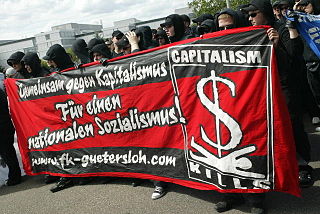 W
WAutonome Nationalisten are German, British, Dutch and to a lesser degree Flemish neo-Nazis, who have adopted some of the far-left and Antifa's organizational concepts, demonstration tactics, symbolism, and elements of clothing, including Che Guevara T-shirts and keffiyehs. Similar groups have also appeared in some central and eastern European countries, beginning with Poland, the Czech Republic, Ukraine, Romania and Greece and others.
 W
WBaathism is an Arab nationalist ideology that promotes the development and creation of a unified Arab state through the leadership of a vanguard party over a progressive revolutionary government. The ideology is officially based on the theories of the Syrian intellectuals Michel Aflaq, Zaki al-Arsuzi, and Salah al-Din al-Bitar. Baathist leaders of the modern era include the former leader of Iraq, Saddam Hussein, and the President of Syria, Bashar al-Assad.
 W
WThe Combat League of Revolutionary National Socialists, more commonly known as the Black Front, was a political group formed by Otto Strasser after he resigned from the Nazi Party (NSDAP) to avoid being expelled in 1930.
 W
WThe Italian Regency of Carnaro was a self-proclaimed state in the city of Fiume led by Gabriele d'Annunzio between 1919 and 1920. It is also known by its lyrical name in Italian: Endeavor of Fiume.
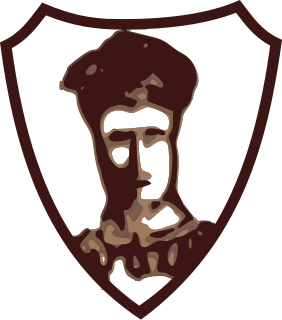 W
WThe Crusade of Romanianism was an eclectic far-right movement in Romania, founded in 1934 by Mihai Stelescu. It originated as a dissident faction of the Iron Guard, Romania's main fascist movement, and was virulently critical of Guard leader Corneliu Zelea Codreanu. Stelescu reinterpreted nationalist ideology through the lens of anticapitalism and "humane" antisemitism, appropriating some ideas from communism and Italian fascism. The Crusade was famously associated with Panait Istrati, world-renowned novelist and dissident communist, who added into the mix of "Romanianism" some elements of libertarian socialism.
 W
WLe Faisceau was a short-lived French fascist political party. It was founded on November 11, 1925 as a far right league by Georges Valois. It was preceded by its newspaper, Le Nouveau Siècle, which had been founded as a weekly on February 26 but became a daily after the party's creation.
 W
WFalangism was the political ideology of two political parties in Spain that were known as the Falange, namely first the Falange Española de las Juntas de Ofensiva Nacional Sindicalista and afterwards the Falange Española Tradicionalista y de las Juntas de Ofensiva Nacional Sindicalista. Falangism has a disputed relationship with fascism as some historians consider the Falange to be a fascist movement based on its fascist leanings during the early years, while others focus on its transformation into an authoritarian conservative movement in Francoist Spain.
 W
WFascism is a form of far-right, authoritarian ultranationalism characterized by dictatorial power, forcible suppression of opposition and strong regimentation of society and of the economy which came to prominence in early 20th-century Europe. The first fascist movements emerged in Italy during World War I, before spreading to other European countries. Opposed to liberalism, democracy, Marxism, and anarchism, fascism is placed on the far right within the traditional left–right spectrum.
 W
WThe Green Party is a political party in Brazil. It was constituted after the military dictatorship period and, like other green parties around the world, is committed to establishing a set of policies on ensuring social equity and sustainable development. One of the party's founding members was the journalist and former anti-dictatorship revolutionary Fernando Gabeira, Alfredo Sirkis and Carlos Minc. The founding of the Rio de Janeiro section of the Brazilian Green Party was led by a delegation from the southern Brazilian state of Santa Catarina, composed among others by Olga Maria Carvalho Luz, Luiz Henrique Gevaerd Odebrecht, Marcos Bayer, and Consuelo Luz Lins.
 W
WHuman Shield is a populist political party in Croatia, formed out of an anti-eviction group of the same name. Also known as Human Blockade, the group opposes foreclosures by occupying property and forming a "human shield", hence the name. The party was founded on 2 June 2011.
 W
WLMP – Hungary's Green Party is a green-liberal political party in Hungary. Founded in 2009, it was one of four parties to win seats in the National Assembly in the 2010 parliamentary election. The party is a member of the European Green Party.
 W
WThe Union of Mladorossi was a political group of Russian émigré monarchists who advocated a hybrid of Russian monarchy and the Soviet system, best evidenced by their motto "Tsar and the Soviets".
 W
WNasserism is a socialist Arab nationalist political ideology based on the thinking of Gamal Abdel Nasser, one of the two principal leaders of the 1952 July movement and Egypt's second President. Spanning the domestic and international spheres, it combines elements of Arab socialism, republicanism, nationalism, anti-imperialism, developing world solidarity and international non-alignment.
 W
WThe National Bolshevik Party operated from 1993 to 2007 as a Russian political party with a political program of National Bolshevism. The NBP became a prominent member of The Other Russia coalition of opposition parties. Russian courts banned the organization and it never officially registered as a political party. In 2010, its leader Eduard Limonov founded a new political party, called The Other Russia. There have been smaller NBP groups in other countries.
 W
WNational Bolshevism, whose supporters are known as National Bolsheviks, NatBols or NazBols, is a political movement that combines elements of fascism and Bolshevism.
 W
WThe National Front (NF) is a far-right, fascist political party in the United Kingdom. It is currently led by Tony Martin. As a minor party, it has never had its representatives elected to the British or European Parliaments, although it gained a small number of local councillors through defections, and it has had a few of its representatives elected to community councils. Founded in 1967, it reached the height of its electoral support during the mid-1970s, when it was briefly the UK's fourth-largest party in terms of vote share.
 W
WThe National Peasants' Party was an agrarian political party in the Kingdom of Romania. It was formed in 1926 through the fusion of the Romanian National Party (PNR), a conservative-regionalist group centered on Transylvania, and the Peasants' Party (PȚ), which had coalesced the left-leaning agrarian movement in the Old Kingdom and Bessarabia. The definitive PNR–PȚ merger came after a decade-long rapprochement, producing a credible contender to the dominant National Liberal Party (PNL). National Peasantists agreed on the concept of a "peasant state", which defended smallholding against state capitalism or state socialism, proposing voluntary cooperative farming as the basis for economic policy. Peasants were seen as the first defense of Romanian nationalism and of the country's monarchic system, sometimes within a system of social corporatism. Regionally, the party expressed sympathy for Balkan federalism and rallied with the International Agrarian Bureau; internally, it championed administrative decentralization and respect for minority rights, as well as, briefly, republicanism. It remained factionalized on mainly ideological grounds, leading to a series of defections.
 W
WNational syndicalism is an adaptation of syndicalism to suit the social agenda of integral nationalism. National syndicalism developed in France, and then spread to Italy, Spain, and Portugal.
 W
WThe Other Russia of E. V. Limonov, formerly The Other Russia, is a non-registered Russian political party founded on July 10, 2010 by Eduard Limonov. The Other Russia was reorganized in September 2020, and The Other Russia changed the party's name to "The Other Russia of E. V. Limonov", to honor their deceased founder, who had died the same year
 W
WThe Parti communautaire national-européen (PCN) is a Belgium-based political organisation led by Luc Michel, a former member of the neo-Nazi FANE party. A largely National Bolshevik movement, it also has activists in France.
 W
WThe People's Mujahedin Organization of Iran, or the Mujahedin-e-Khalq, is an Iranian political-militant organization. It advocates overthrowing the leadership of the Islamic Republic of Iran and installing its own government. Its revolutionary interpretation of Islam contrasts with the conservative Islam of the traditional clergy as well as the populist version developed by Ayatollah Khomeini in the 1970s. It is also considered the Islamic Republic of Iran's biggest and most active political opposition group.
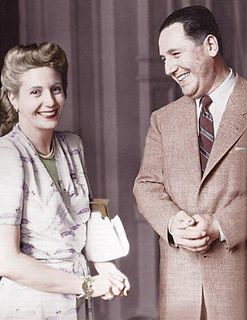 W
WPeronism, also called justicialism, is an Argentine political movement based on the ideas and legacy of Argentine president Juan Perón (1895–1974). It has been an influential movement in 20th and 21st century Argentine politics. Since 1946, Peronists won 10 out of the 13 presidential elections in which they have been allowed to run. The main Peronist party is the Justicialist Party. The policies of Peronist presidents have differed greatly, but the general ideology has been described as "a vague blend of nationalism and labourism" or populism.
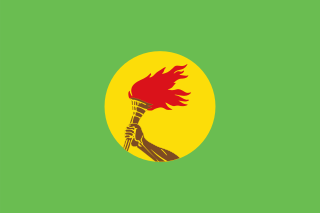 W
WThe Popular Movement of the Revolution was the ruling political party in Zaire. For most of its existence, it was the only legally permitted party in the country. It was founded by Joseph-Désiré Mobutu on 20 May 1967.
 W
WCercle Proudhon was a National-syndicalist political group founded in France on December 16, 1911 by Georges Valois and Édouard Berth. The group was inspired by Georges Sorel, Charles Maurras and a selective reading of anarchist theorist Pierre-Joseph Proudhon.
 W
WThe Rights and Equality Party was a political party in Turkey, founded on 4 September 2008 by Osman Pamukoğlu, a former army general known for his military successes against the Kurdistan Workers' Party in the 1990s during the Kurdish–Turkish conflict.
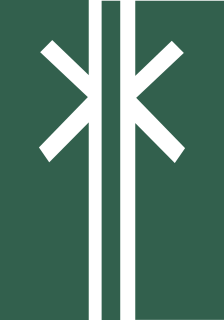 W
WThe Social Credit Party of Great Britain and Northern Ireland was a political party in the United Kingdom. It grew out of the Kibbo Kift, which was established in 1920 as a more craft-based alternative for youth to the Boy Scouts.
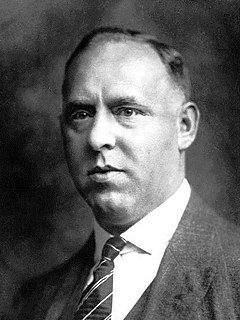 W
WStrasserism is a strand of Nazism that calls for a more radical, mass-action and worker-based form of Nazism, espousing economic antisemitism above other antisemitic forms, to achieve a national rebirth. It derives its name from Gregor and Otto Strasser, two brothers initially associated with this position.
 W
WThe Syrian Social Nationalist Party (SSNP), is a Syrian nationalist party operating in Lebanon, Syria, Jordan, Iraq and Palestine. It advocates the establishment of a Greater Syrian nation state spanning the Fertile Crescent, including present-day Syria, Lebanon, Iraq, Kuwait, Jordan, Palestine, Israel, Cyprus, Sinai, Hatay Province, and Cilicia, based on geographical boundaries and the common history people within the boundaries share.
 W
WTerza Posizione was a short-lived far-right political and terrorist movement founded in Rome in 1979. The group published a journal, also called Terza Posizione which promoted Third Position politics. It was formed by teenagers and students from a previous group called Lotta Studentesca.
 W
WThe Third International Theory was the style of government proposed by Muammar Gaddafi in the early 1970s, on which his government, the Great Socialist People's Libyan Arab Jamahiriya, was officially based. It was partly inspired by Islamic socialism, Arab nationalism, African nationalism and partly by the principles of direct democracy.
 W
WThe Traditionalist Worker Party (TWP) was a far-right neo-Nazi group active in the United States between 2013 and 2018, affiliated with the broader "alt-right" movement that became active within the U.S. during the 2010s.
 W
WWiderstand. Zeitschrift für nationalrevolutionäre Politik was a monthly magazine established in Germany in 1926 to advocate National Bolshevism. It was published in Berlin, under the editorship of Ernst Niekisch. Prominent contributors included Ernst Jünger, Friedrich Georg Jünger, August Winnig, and Joseph E. Drexel. The newspaper was shut down in December 1934. After a time in the underground, Niekisch was arrested and held in Nazi concentration camps from 1937 to 1945.
 W
WThe WikiLeaks Party was a micro political party in Australia. The party was created in part to support Julian Assange's failed bid for a Senate seat in Australia in the 2013 election, where they won 0.66% of the national vote. The WikiLeaks Party national council consisted of Assange, Matt Watt, Gail Malone, Assange’s biological father John Shipton, Omar Todd and Gerry Georgatos.